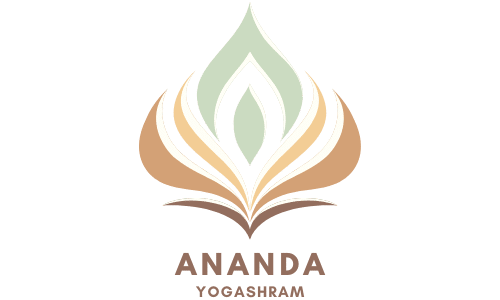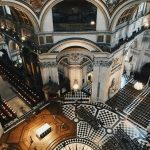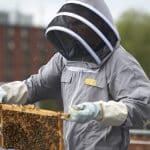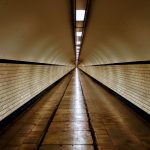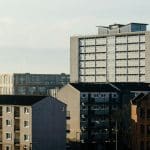When it comes to the evolution of British fashion, no era holds more significance than the period following the Second World War. That time in history ushered in a seismic shift in style, with the British fashion industry emerging from the turmoil of war to redefine and establish what we now recognise as modern design. Now, several cities across the UK are offering interactive workshops to dive deep into this transformative time in British fashion. With these courses, you can delve into the rich, vibrant history of post-war fashion, understand its impact on the present-day industry, and even create your own designs inspired by this iconic era.
London: The Heart of British Fashion
There’s no better place to begin your exploration of post-war British fashion than in London, the heart and soul of Britain’s design industry. The city’s universities and museums offer a wide array of interactive workshops that provide a comprehensive understanding of the history and evolution of British fashion.
En parallèle : How can tourists participate in restoration projects of historical buildings in the Cotswolds?
The globally renowned London College of Fashion is one of the leading institutions in the field. As a part of the University of the Arts London, it offers short courses on the history of British fashion, including special focus on the post-war era. These courses are not just reading and studying; they involve interactive discussions, study of original garments from the period, and hands-on design exercises.
The Victoria and Albert Museum, London, holds regular exhibitions highlighting Britain’s fashion history. They often run workshops alongside these exhibitions, where attendees can immerse themselves in interactive sessions that delve into the design processes of the time.
Cela peut vous intéresser : Where can visitors learn about the history of British jazz in London?
Manchester: Industrial City to Fashion Hub
Manchester, known for its industrial past, has evolved into a vibrant hub for British fashion over the course of the 20th century. Manchester Metropolitan University offers courses on fashion history that delve into the post-war era. They provide participants with an understanding of how the city’s industrial history influenced the fashion industry.
In addition, the Manchester Craft and Design Centre holds interactive workshops where you can create your own pieces inspired by post-war fashion. These are often led by local designers and provide a unique, hands-on exploration of the era.
Brighton: The Rising Star of Retro Fashion
Brighton has become a beacon for the retro and vintage fashion scene in Britain, making it an ideal city to explore the history of post-war British fashion. The University of Brighton offers courses on the history of fashion, with a focus on the transformative post-war era. These courses cover everything from the utilitarian clothing of the early post-war years to the explosion of colour and design in the 1960s.
Aside from the university, Brighton’s Fashion and Textile School also conducts interactive workshops that allow participants to design and create their own vintage-inspired pieces.
Edinburgh: A Scottish Take on Fashion History
While Scotland may be more renowned for its traditional tartan and kilts, Edinburgh offers a unique perspective on British fashion history. Edinburgh College of Art, part of the University of Edinburgh, offers courses on fashion that delve into the post-war era.
The National Museum of Scotland in Edinburgh often holds exhibitions exploring the history of fashion in Britain, including the impact of war on clothing design. Alongside these exhibitions, they run interactive workshops that allow you to explore the materials, methods, and inspiration behind post-war fashion.
Bristol: Fashion with a Cultural Twist
Bristol, known for its multicultural heritage, offers a diverse perspective on post-war British fashion. The University of Bristol runs courses exploring the cultural influence of empire and immigration on British fashion, particularly in the aftermath of the war.
The city’s Fashion Research Centre also conducts interactive workshops, often in collaboration with local communities, to explore the fashion of the post-war era. These workshops not only delve into the design aspects but also address the social and cultural impact of fashion during this transformative time.
In essence, whether it’s London’s exquisite blend of traditional and contemporary fashion, Manchester’s industrial fashion evolution, Brighton’s retro flair, Edinburgh’s Scottish perspective, or Bristol’s cultural twist, each city offers a unique avenue to explore and engage with the rich and vibrant history of post-war British fashion.
Exploring Post-War Fashion through Design Archives
When studying the history of post-war British fashion, it’s essential to consider the design archives that have meticulously preserved styles, sketches, and concepts from that period. These are invaluable resources for both historians and designers looking to understand the evolution of fashion in Britain after the second war.
The Design Council archive, housed at the University of Brighton’s Design Archives, offers an extensive collection of documents, sketches, and photographs from this transformative era. This archive is key to understanding how British fashion moved from the austerity of the war years to the vibrant styles of the early modern period.
In addition to the design archives, National Archives in Kew and County Council archives across the country also provide valuable insights into post-war fashion through archived original documents, photographs, fashion magazines, and periodicals from the time. These archives not only shed light on the key stage in the evolution of British fashion but also provide a socio-cultural context to these changes. For instance, documents reveal the influence of the Empire Windrush generation on British fashion, a multicultural influence that is still evident today.
A visit to these archives is an interactive experience in itself, offering an immersive dive into the fashion history hook that the post-war era represents.
The Influence of Industrial Design and Festivals on Post-War Fashion
The Industrial Design movement and events such as the Festival of Britain had a significant impact on post-war British fashion and the direction it took in the early century.
The Festival of Britain, held on the South Bank in London in 1951, was a national exhibition celebrating British industry, arts, and science. Its influence on fashion was profound, with the showcased styles reflecting a move towards optimism and a break from the austerity of the war years. The festival’s influence can be seen in the fashion of the early 1950s, which embraced bold colours, patterns, and innovative shapes.
Industrial design, with its focus on the efficient and aesthetic design of consumer goods, also influenced post-war fashion. The Design Council, established in 1944, played a pivotal role in promoting good design in British industry, including fashion. The council’s efforts to bring art and industry together resulted in fashion designs that were both functional and aesthetically pleasing, which was a departure from the frugality of the war years.
This period of change and creativity is explored in-depth in the workshops held in the cities mentioned earlier, where participants can delve into the archives, learn about the influences and events of the time, and create their own designs inspired by the era.
Conclusion
In conclusion, the evolution of post-war British fashion is a topic of rich history and significance, and it shapes the modern British fashion industry. The interactive workshops offered in cities across the UK, including London, Manchester, Brighton, Edinburgh, and Bristol, offer a comprehensive understanding of this transformative era. Each city, with its unique history, design archives, and cultural influences, provides a distinct lens through which to explore post-war British fashion.
Participating in these workshops not only enriches our understanding of British fashion history but also highlights the importance of using past influences to inspire contemporary designs. Whether you are an aspiring fashion designer, a fashion historian, or someone with a keen interest in the English language and culture, there’s a wealth of knowledge to be gained from exploring the vibrant and transformative world of post-war British fashion.
